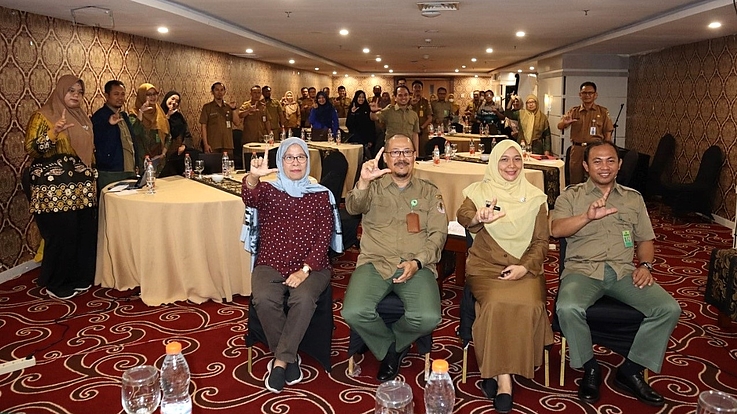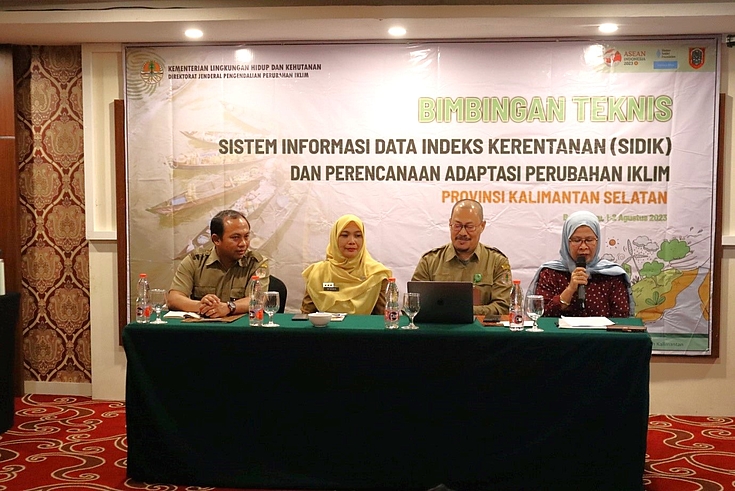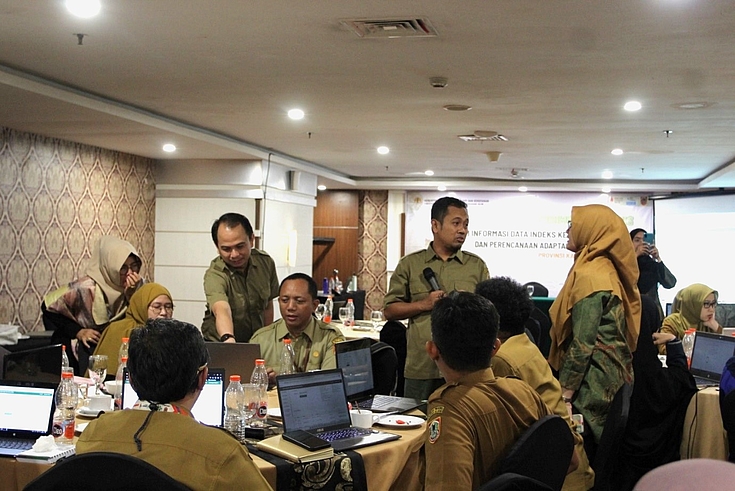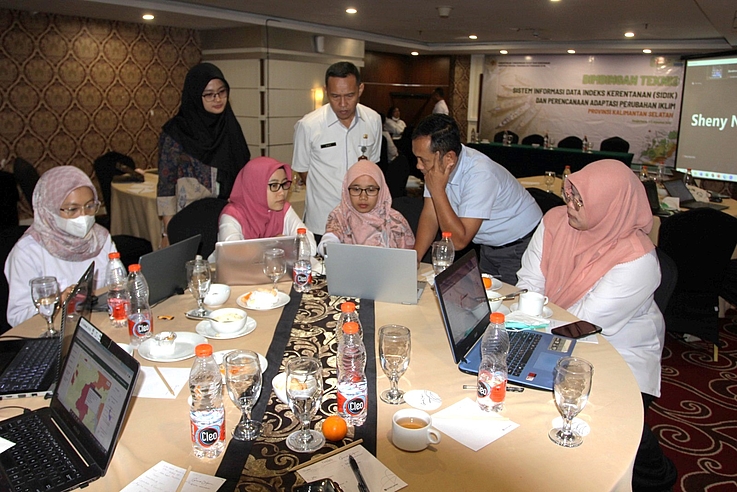Adaption Action in South Kalimantan Province
Capacity Building on Local Climate Change Adaptation for Non-party Stakeholders
Opening session by Head of Center of Climate Change in Palangkaraya, Secretary of Provincial Ministry of Environment of South Kalimantan Province, Secretary of Directorate General of Climate Change Control of Ministry of Environment and Forestry, representative of Hanns Seidel Foundation in Indonesia
HSF
The Center of Climate Change of the Ministry of Environment and Forestry (MoEF) for Kalimantan in Palangkaraya is expected to reach out to all provinces and districts/cities governments in the region to implement this regulation. In this respect, MoEF and Hanns Seidel Foundation (HSF) organised a two days training workshop for 40 stakeholders from related provincial ministries/agencies and universities on 1st-2nd August 2023 in Banjarbaru, South Kalimantan on adaption action plans and vulnerably assessments.
During the workshop, participants were introduced to the Data Information System of Vulnerability Indexes (SIDIK) application and its usage in order to develop vulnerability assessments of their areas which will serve as a basis to develop local adaption action plans in the future. The SIDIK from the MoEF currently only describes national data sourced from the 2018 statistical data which includes 21 national indicators. To assess the specific vulnerabilities of the South Kalimantan Province area, data on the provincial level is needed, which will be collected from the results of the training with stakeholders. The data will then be compiled, processed, and input into the national SIDIK in order to produce a regional vulnerability assessment of South Kalimantan Province.
Participants exercised inputting and running SIDIK
HSF
This vulnerability study will be used to formulate adaptation action options to be carried out by the provincial government of South Kalimantan. During the training participant practiced how to determine and weigh vulnerability indicators, how to input and run data into SIDIK to asses vulnerability of South Kalimantan Province, and how to determine action options and priorities for the South Kalimantan Province.
Participants stated that they gained new insights with regards to climate change adaptation action plan preparation, and materials delivered during the training is personally important for them. As a result of the workshop, the South Kalimantan Province established a working group consisting of related ministries/agencies and universities to further develop the preparation of adaptation action plans in the future. The working group will be led by the provincial branch of the MoEF. It is expected that the adaptation action plan for South Kalimantan will be ready by end of 2023.




